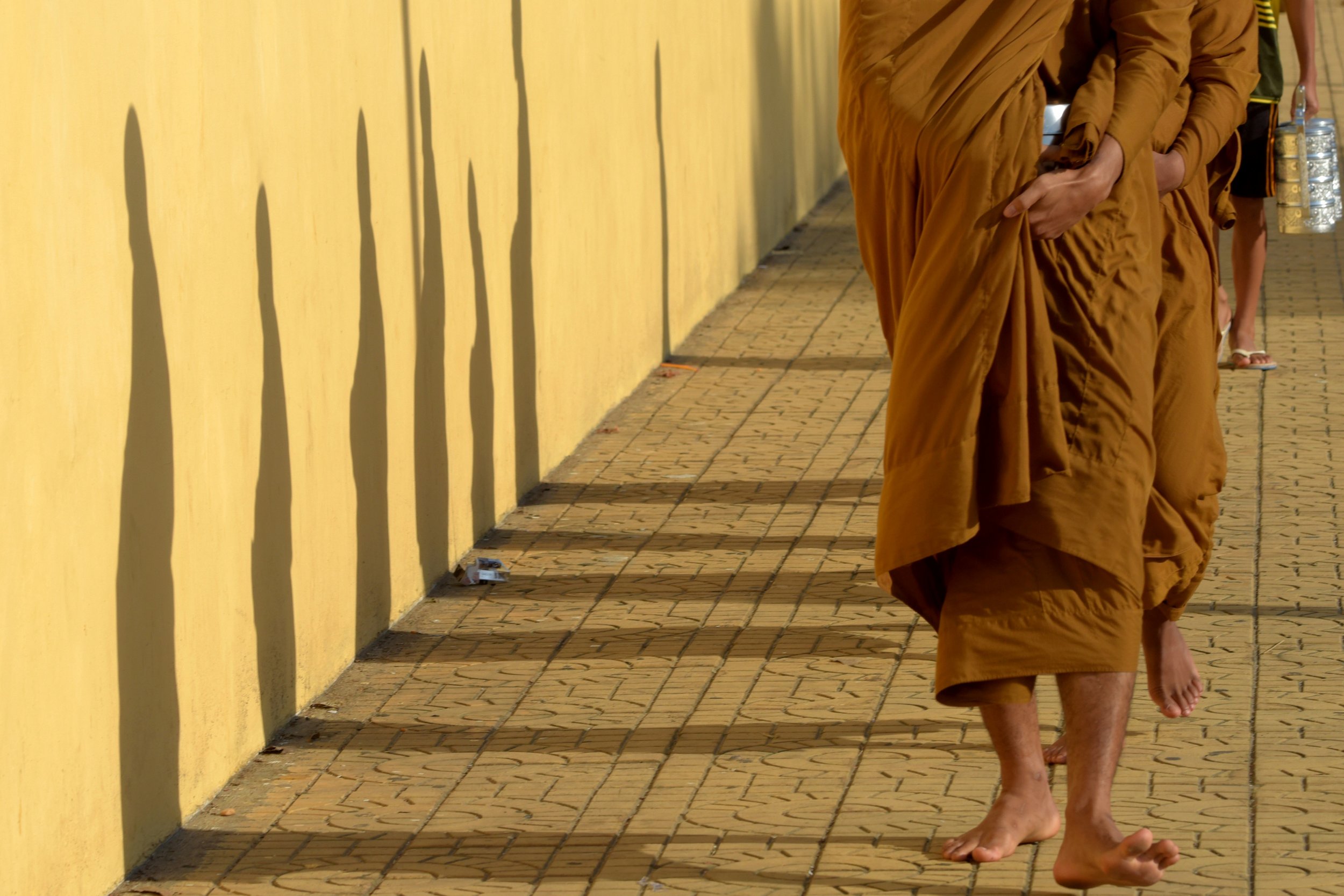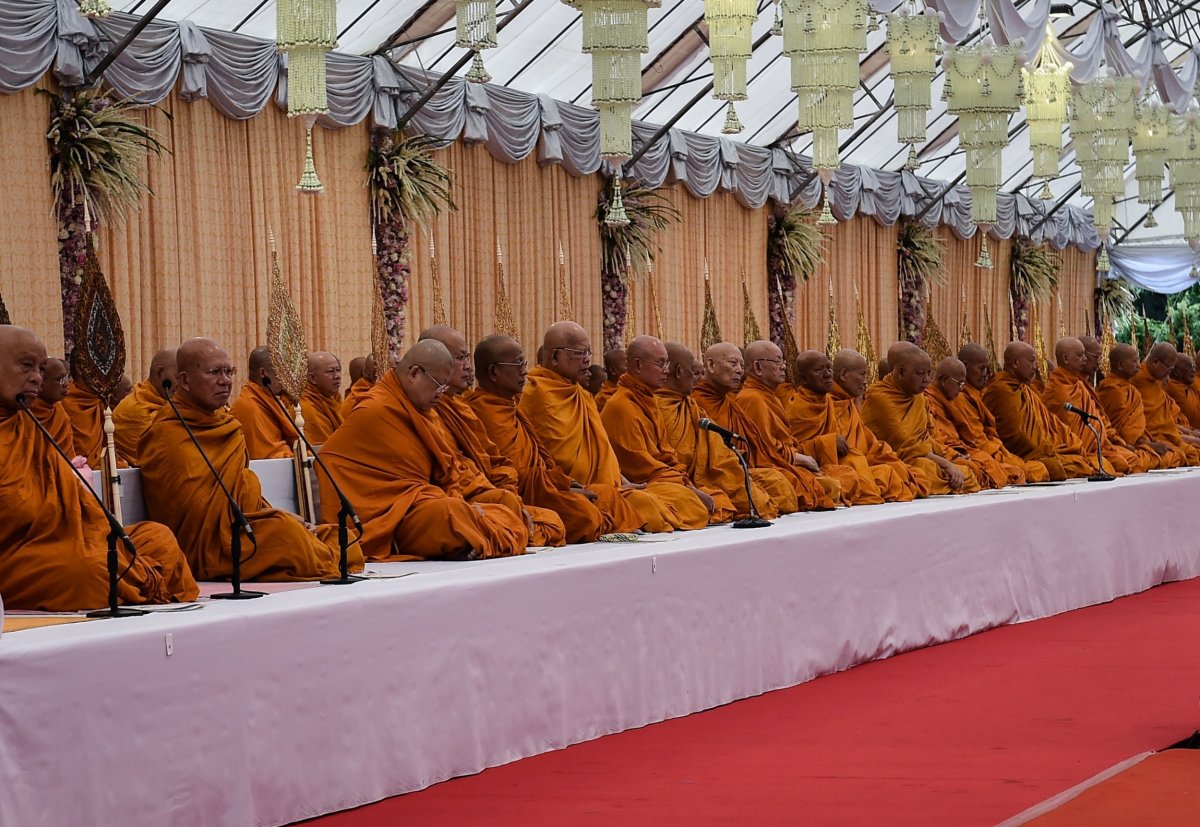
Death is a scary thought for most—but Buddhism holds specific beliefs that might be expected to curb that fear. Buddhism teaches that the "persisting self," essentially, does not exist, as described in a new study. The self, which is somewhat comparable to the soul, is a combination of traits that are ever-changing, and the self, as many Westerners may know it, does not persist through time and old age.
That understanding of Buddhism prompted researchers to hypothesize that monastic Buddhists would fear death less when compared to lay Buddhists, Hindus and Christians. Their perceived belief that the self does not exist would surely mitigate the seemingly natural human instinct to fear death. But the researchers' study, published January 22 in Cognitive Science, found otherwise.
The team was led by Shaun Nichols, a philosopher from the University of Arizona, and Nina Strohminger, legal studies and business ethics professor at the University of Pennsylvania. They conducted various surveys analyzing attitudes towards death and the "self" among Hindus, Westerners (a majority Christian, atheist or agnostic) and three Buddhist populations, including lay Tibetan, lay Bhutanese and monastic Tibetans. The monastic Tibetan participants, who practice Buddhism in monasteries in India, were believed to be more strictly religious in comparison to the lay Tibetan and Bhutanese Buddhists.
The surprising finding from the study revealed that monastic Buddhists were, in fact, the most fearful of death—and specifically of self-annihilation. In the survey, the researchers evaluated the myriad reasons that people might be afraid of death—the loss of self-fulfillment, loss of social identity, consequences to family and friends, punishment in the afterlife, and so on. When taking into consideration all types of fears of death, monastic Buddhists were largely in line with the other groups. But, they feared self-annihilation more than any other group—which is what baffled researchers.
"We found something really shocking, which is that [monastic Buddhists] were afraid of their 'self' dying—ending at death," Strohminger told Newsweek. She said it was "especially shocking" that this specific fear of death would be present for Buddhists, considering the idea of the "self" is an illusion under their beliefs.
Our paper on paradoxes of the monastic Tibetan sense of self is out! Probably the most bizarre and unexpected finding of my career 👇 https://t.co/xlh05AqN7B
— Émile Dunkheim (@NinaStrohminger) January 22, 2018
In a separate survey evaluating what the monastic Tibetans believed about the "self," their answers followed the researchers' expectations. Buddhists believe that the self is an illusion, and the participants in this study answered as such. But when asked about the fear of death—specifically the death of the "self"—their fears outweighed that of lay Bhutanese Buddhists, non-religious people, Indian Hindus, Christians and lay Tibetan Buddhists. Compared to some groups, the monastic Tibetans' fear of "self-annihilation" nearly doubled.
The study revealed a second unexpected finding: monastic Buddhists were not as generous as one might assume. Participants were given a scenario in which they had to imagine they had a terminal illness and would die in six months unless they took a specific medication. In the scenario, participants had the option of taking the medication and prolonging their life by six months or giving the medication to a stranger they will never meet. The medication would prolong the stranger's life between less than one month to at least five years. Participants had to choose how much longer the stranger's life would be prolonged to make it worth it for them to give away the medicine.

Monastic Buddhists were the most likely to choose not to give away the medicine at all, even if the stranger would live another five years. Nearly three-quarters of monastic Buddhists chose that option, which Strohminger said was an indication "that our instrument was not sensitive enough to capture just how selfish they were."
The surprising findings, both on generosity and fear of death, counter what would be assumed to be true based on the central concepts of Buddhism. Buddhist philosophers argue that understanding the self as an illusion should result in more generosity, care and love for others, as well as the reduction of egocentricity, according to the authors. That "no-self doctrine," as Strohminger described it, "doesn't, at least in this context, appear to be doing that at all."
"If anything, it appears to be doing exactly the opposite," she said.
Uncommon Knowledge
Newsweek is committed to challenging conventional wisdom and finding connections in the search for common ground.
Newsweek is committed to challenging conventional wisdom and finding connections in the search for common ground.
About the writer
Sydney Pereira is a science writer, focusing on the environment and climate. You can reach her at s.pereira@newsweekgroup.com.





